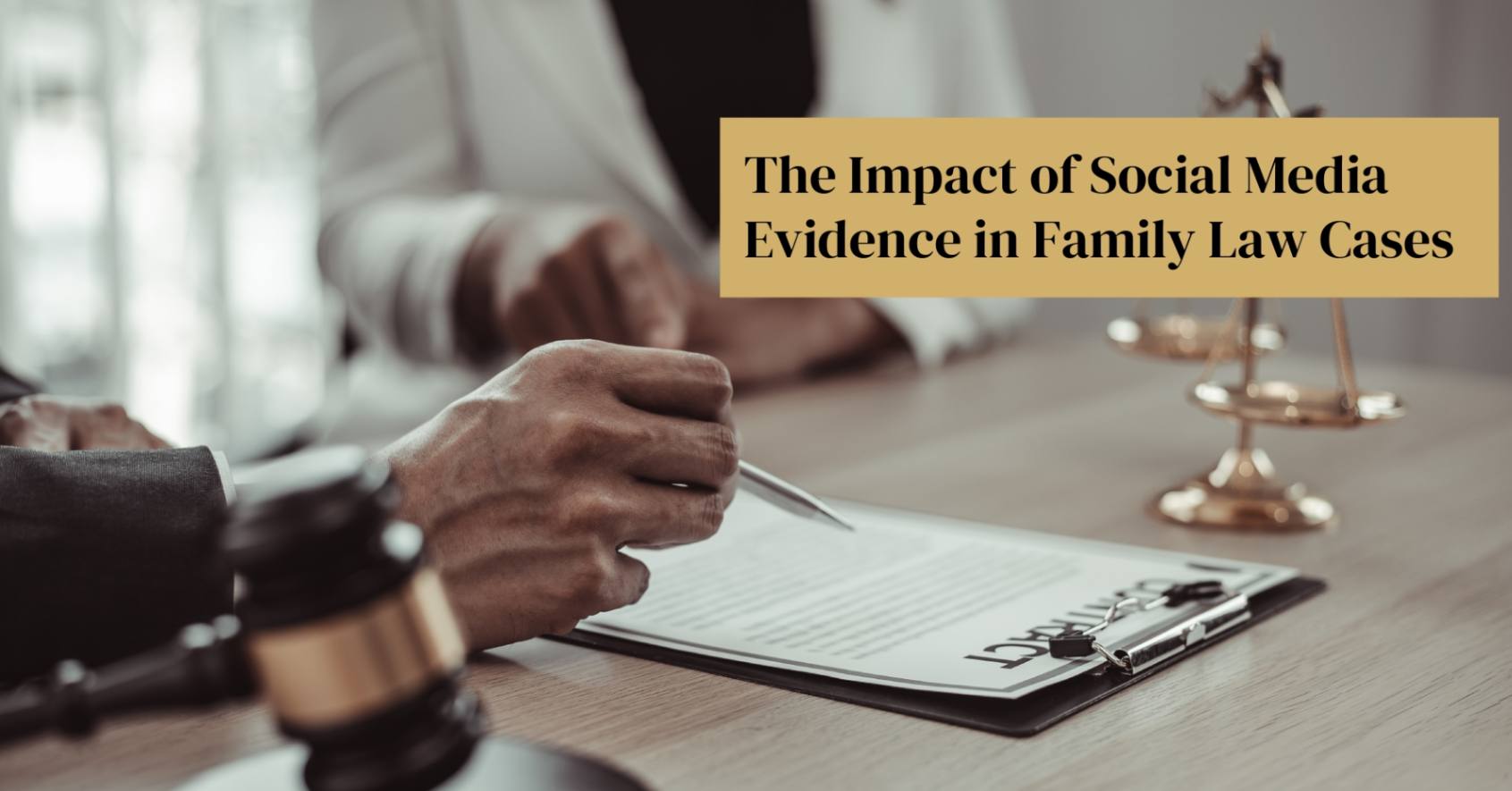Social media has become an integral part of our lives in today’s digital age. Platforms such as Facebook, Instagram, and Twitter provide us with a glimpse into each other’s lives, whether it is for interacting with friends and family or exchanging ideas and experiences. However, many people may need to realize that the content they post on social media can have significant implications, especially in family law cases.
The Rise of Social Media Evidence
Social media evidence has emerged as a crucial factor in family law proceedings in recent years. Family lawyers and divorce attorneys increasingly turn to platforms like Facebook, Instagram, and WhatsApp to gather evidence to strengthen their clients’ cases. From incriminating photos and videos to revealing status updates and messages, social media can provide valuable insights into a person’s behaviour, lifestyle, and relationships.
The Importance of Social Media Evidence
In family law cases, social media evidence can play a pivotal role in various aspects, including:
- Child Custody and Parenting Time: Social media posts depicting a parent engaging in irresponsible or inappropriate behaviour can impact decisions related to child custody and parenting time arrangements. For instance, a picture of a parent doing drugs or going out too much to parties can raise doubts about their capacity to give their kids a stable and secure home.
- Asset Division: Social media can also uncover hidden assets or financial discrepancies during divorce proceedings. For instance, posts showcasing lavish purchases or extravagant vacations may contradict claims of financial hardship or inability to pay spousal support.
- Spousal Support and Alimony: Evidence obtained from social media can influence determinations regarding spousal support and alimony payments. For instance, if a divorcing spouse claims to be unemployed or underemployed, but their social media profiles suggest otherwise, it can impact the court’s decision on the amount and duration of support payments.
Real-Life Example: The Case of Sarah and Michael
Consider the case of Sarah and Michael, a married couple going through a contentious divorce. In court, Sarah, seeking primary custody of their two children, presented herself as a devoted and responsible parent. However, Michael’s lawyer discovered incriminating photos on Sarah’s Instagram account, showing her partying late into the night and consuming alcohol excessively.
Armed with this evidence, Michael’s lawyer argued that Sarah’s lifestyle was not conducive to providing their children with a stable and safe environment. The court ultimately ruled in Michael’s favour, granting him primary custody of the children and limiting Sarah’s parenting time.
Navigating the Legal Landscape
Given the significant impact of social media evidence in family law cases, individuals need to exercise caution when using social media, especially during divorce or custody disputes. Here are some tips to navigate the legal landscape:
- Think Before You Post: Before sharing anything on social media, consider how it could be interpreted legally. Avoid posting anything that could be misconstrued or used against you in court.
- Adjust Privacy Settings: To restrict who can read your posts and personal information, go over and modify your privacy settings. However, remember that even private posts can be subpoenaed in certain circumstances.
- Seek Legal Guidance: If you’re involved in a family law case, consult a reputable family lawyer or divorce attorney who can advise you on navigating social media issues effectively.
Conclusion
In today’s digital age, social media evidence has transformed the landscape of family law cases, offering unprecedented insights into individuals’ lives. As demonstrated by real-life examples and legal considerations, the impact of social media on child custody, asset division, and spousal support cannot be overstated. Therefore, individuals navigating family law disputes must exercise discretion in their online activities and seek guidance from experienced legal professionals. By understanding the implications of social media evidence and taking proactive steps to protect their interests, parties involved can better navigate the complexities of family law proceedings and secure favourable outcomes for themselves and their loved ones.


